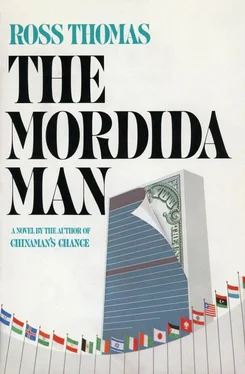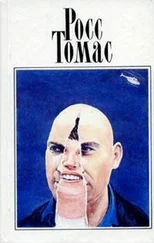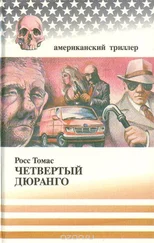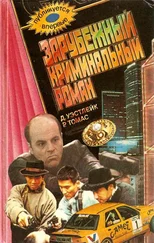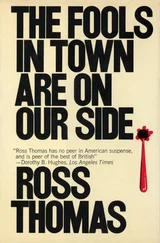“When do we start?” Spiceman asked.
“I’ll move straight toward the left corner of the house. That’s five seconds, maybe four. Then I’ll work my way to the door. When I start for the corner of the house, you start. And don’t stop. If you stop, I get my head blown off.”
“Good luck, Mr. Dunjee,” Timble said.
“Fuck off,” Dunjee said and started crawling toward the left end of the wall. He crouched there for a moment, taking deep breaths. He remembered the mechanics of what he had to do. Fast forward, down and roll. But that was the trouble, of course. He had to remember what once had been almost instinct.
“Well, hell,” Dunjee whispered and started for the left corner of the stone farmhouse. He went fast and low — bent over almost double. He could hear them firing. At least they were doing that. He went into the roll six feet from the farmhouse and finished up lying pressed against the round stones. He found himself wanting to stay there — to hug the stone and not move.
He made himself move. He crawled. The door was a mile away, possibly two. It took him three hours to get there. It should all be coming back to you, he thought. It should be just chock full of déjà vu. But it isn’t. It’s just crawling along a wall in the dirt toward a door. It’s the way you earn your living. It’s your profession.
When he reached the door he didn’t hesitate. He knew if he hesitated, he wouldn’t go through it. Diringshoffen had left the door open almost a foot when he came out to die. Nobody had closed it.
Dunjee slammed the door back. He went through it in a leap, spinning in midair and firing at the space just below the win-dowsill where the dark shape should have been crouched, but wasn’t.
Behind you, Dunjee thought. He’s behind you at the other window. He whirled around. The shutters of the other window were now wide open. Ko had just emptied a magazine through the window at the stone wall. He was in the midst of changing magazines, his eyes wide and staring at Dunjee.
Full automatic, Dunjee thought. You had it on full automatic. Now it’s empty. There was a time when he could have done it in less than a second. Release the taped-together magazines, reverse them, and ram them home.
He didn’t think about how to do it now. He let his hands do it. They seemed to remember. He heard the magazine click into place just as Ko brought the muzzle of his own rifle up. Dunjee was surprised when Ko, kneeling, started to slump forward. There were red gobbets all over Ko’s shirt, made by Dunjee’s tumbling .223-caliber bullets. Ko’s face was gone. He fell forward.
Dunjee looked down at the M-16 rifle. His forefinger was still wrapped tightly around the trigger. He couldn’t remember firing. He couldn’t remember the sound the shots had made. Dunjee started over toward the dead Ko but stopped at the sound of the bullhorn.
“Dunjee!” the bullhorn said. “Hey, Dunjee!”
Dunjee went to the door. “What?” he yelled.
“We’re coming in,” the bullhorn said. “Okay?”
“Okay,” Dunjee yelled back.
The first thing they did when they came in was to take Dunjee’s rifle away from him. Spiceman looked almost apologetic when he said, “It’s sort of the end of the line. You understand?”
“Sure,” Dunjee said, not understanding anything.
“Use the Jap’s gun on him, Jack,” Keeling said. “Make it all nice and tidy.”
Spiceman was bending over the dead Ko Yoshikawa to pick up the rifle when the first two came through the far window. They were dressed all in black — black pants, black shirts, black stocking caps, black sneakers, and faces that had been smeared with black. They came through like wraiths, smoothly, silently. Two more came through the other window and one of them kicked Ko’s rifle out of Spiceman’s hands. It seemed to be a hard kick, well practiced, as if he had done it often before.
The final two flowed in through the door. All of them had submachineguns. The submachineguns, of Czech manufacture, were also black. The two who came in through the door seemed to be the leaders. One of them made a motion with his submachinegun. The message was clear. Keeling and Reese put their weapons down slowly on the floor. When they straightened up they raised their hands above their heads. A very frightened Leland Timble did the same thing. Timble’s eyes were wide and staring and his mouth was a small round hole. Through it he kept saying, “Oooh, oooh, oooh,” until Spiceman told him to shut up. Only Dunjee didn’t raise his hands above his head.
One of the men with the submachineguns found the candles that Ko had blown out and lit them. Then he turned toward the door, as if waiting to be told what else to do.
He didn’t have to wait long. Faraj Abedsaid strolled through the door, wearing a smart gray suit, with a rolled-up newspaper tucked under his arm something like a swagger stick.
“Well, Mr. Dunjee,” Abedsaid murmured. “Everything went according to plan, I see.”
Dunjee nodded. “Almost.”
“Now, let’s see, this one?” He pointed at Leland Timble.
Dunjee nodded.
“And this one?” This time the rolled-up newspaper was pointed at Franklin Keeling. Again, Dunjee nodded.
“What about this one?” Abedsaid asked, pointing at Jack Spiceman.
“Him, too.”
“And this gentleman?”
“My name is Alex Reese and this is all part of a CIA operation. I suggest you—”
Abedsaid cut him off. “Mr. Dunjee?”
Before Dunjee could answer, Jack Spiceman said, “He’s a fucking liar.”
Abedsaid turned toward Spiceman and lifted an eyebrow. “Dissent — so soon?”
“My left lapel,” Spiceman said. “Have somebody cut it open.”
Abedsaid turned toward one of the men in black and said something in Arabic. The man produced a knife and slit open Spiceman’s left lapel. He removed a narrow piece of folded-up paper, a little more than an inch or so wide and almost seven inches long. He handed it to Abedsaid, who unwrapped the paper carefully.
“Negatives, it would seem,” Abedsaid said, “and contact prints.” He moved over to one of the candles for a better look. “It would appear that the gentleman with the bald head is in the process of breaking some black gentleman’s neck. What do you think?”
Abedsaid offered the contact prints to Dunjee, who examined them near the candle. They showed Alex Reese rising from the Central Park bench; putting his hands to Mapangou’s neck and head; twisting the neck, and Dr. Mapangou falling to the ground.
“Dr. Mapangou,” Dunjee said. “He was Gambia’s representative to the UN.”
“Really,” Abedsaid said. “Well, what do you say about our bald-headed friend then?”
“Sure,” Dunjee said. “Him too.”
Again, Abedsaid said something in Arabic. One of the black-clad men reached behind and brought out five pairs of handcuffs that had been taped together with masking tape to keep them from jingling. He stripped the masking tape off.
The first to be handcuffed was Leland Timble. “I demand to see the United States consul,” Timble said. “I demand to speak to the—”
He stopped speaking when the man who had the handcuffs produced a roll of wide surgical tape, ripped off a piece, and slapped it across Timble’s mouth.
“What’ll he do with them?” Dunjee asked as he watched the last of the handcuffs being snapped into place.
“The Colonel? I’m not sure what he really does have in mind,” Abedsaid said. “Something weird probably.” He turned toward the four handcuffed men. “Anything you’d like to say to them before they depart, Mr. Dunjee?”
“No,” Dunjee said. “Nothing.”
Abedsaid snapped something else out in Arabic and the six black-clad men led Leland Timble, Alex Reese, Jack Spiceman, and Franklin Keeling out through the door of the stone farmhouse. Abedsaid watched them go with evident satisfaction.
Читать дальше
